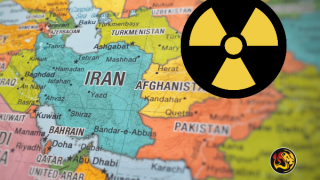
by Emmitt Barry, Worthy News Correspondent
(Worthy News) – In a stark warning to lawmakers, General Anthony J. Cotton, Commander of U.S. Strategic Command (USSTRATCOM), testified before the Senate Armed Services Committee on Strategic Forces yesterday, revealing that Iran has significantly advanced its nuclear capabilities.
General Cotton reported that Tehran has expanded its stockpile of highly enriched uranium and drastically reduced the time needed to produce weapons-grade material for a nuclear warhead—from an estimated 10 to 15 days down to less than one week. This accelerated timeline raises fresh concerns about Iran’s ability to achieve a nuclear weapons capability rapidly.
“The Islamic Republic of Iran continues to expand its nuclear program by increasing its stockpile of highly enriched uranium and deploying additional advanced centrifuges,” Cotton said in his written testimony. “Tehran has reduced the time required to produce sufficient weapons-grade uranium for a nuclear device.”
In addition to its nuclear progress, Iran’s work on space-based launch vehicles was also highlighted. General Cotton explained that these developments have effectively shortened the country’s path to building an intercontinental ballistic missile (ICBM). He noted that such a missile could potentially carry a 2,200-pound payload over a range of 2,400 miles, posing a growing threat to regional and global security.
The testimony underscores rising tensions over Iran’s nuclear ambitions and signals potential implications for U.S. defense strategy and international diplomacy.
Last month, the International Atomic Energy Agency (IAEA) reported that Iran has ramped up production of uranium enriched to 60% — just below the 90% needed for weapons use. The agency warned that Iran now has enough of this material to make six nuclear bombs if further enriched, a process experts say could be done rapidly.
Despite Iran’s growing uranium stockpile, analysts say it still lacks the technology and expertise needed to assemble a functional nuclear warhead — a complex “weaponization” phase requiring advanced engineering and precision.
Critics of the Iranian regime have been warning for years of Iran’s intentions of developing nuclear weapons, despite Iranian claims publicly that it is only for peaceful purposes. However, the credibility of these denials is eroded by the persistent calls from Iranian leaders for the “Death of Israel,” referring to it as the “Little Satan” and advocating for the destruction of the United States, labeling it as the “Great Satan.” Such rhetoric casts doubt on their declarations of pursuing a peaceful nuclear program.
IRAN’S NUCLEAR AMBITIONS CONNECTED TO PROPHECY?
While the West often views Iran’s nuclear program through a secular lens, the spiritual aspect, which plays a central role in driving Iran’s nuclear ambitions, should not be overlooked. Iran is the only country where Twelver Shi’ism is the state religion.
Twelver Shīʿism, the largest branch of Shīʿa Islam, makes up about 85% of Shīʿas. “Twelver” signifies belief in twelve divinely appointed leaders, the Twelve Imams, with the last, Imam al-Mahdi, expected to return as the Mahdi. Twelvers see the Imams as Muhammad’s spiritual and political successors, guiding with justice and interpreting Islamic law and the Qur’an’s inner meanings. They are viewed as infallible (Ismah) and divinely chosen (nass).
The Twelvers believe that the Mahdi is expected to appear in times of extreme chaos, returning alongside Jesus as a messiah to bring peace and establish Islam globally.
Twelver beliefs, Iran’s nuclear ambitions, and threats toward Israel and the West have raised concerns. Critics suggest that Iran’s Supreme Leader might incite conflict to hasten the 12th Imam’s arrival. Former Iranian President Ahmadinejad has even called for the Imam’s return at the UN, asserting that the Islamic Revolution’s primary goal is to prepare for his reappearance.
Copyright 1999-2026 Worthy News. This article was originally published on Worthy News and was reproduced with permission.
Latest News from Worthy News
Senior Hamas leader Khaled Mashaal on Sunday reaffirmed the terrorist group’s refusal to disarm, rejecting demands from U.S. President Donald Trump and vowing to continue the fight against Israel.
The U.S. government added $696 billion to the national debt over the past four months, borrowing $94 billion in the month of January alone, the Congressional Budget Office reports.
Anti-ICE protests continued in Minneapolis over the weekend, resulting in dozens of arrests by local law enforcement.
Authorities across North Africa and southern Europe remained on high alert Monday after powerful storms killed numerous people and forced the evacuation of more than 160,000 residents.
Ukraine’s foreign minister has warned that intensified Russian attacks on his country’s energy infrastructure are creating a direct risk of a nuclear incident that could affect all of Europe.
Official results confirmed Monday that Socialist Party candidate António José Seguro won Portugal’s presidential election with 66.7 percent of the vote, defeating André Ventura of the right-wing nationalist Chega (“Enough”) party.
Despite what advocates describe as decades of persecution, discrimination, and insecurity, Pakistan’s Christians remain steadfast in their faith and committed to peaceful coexistence, a leading Christian rights advocate said Friday.







